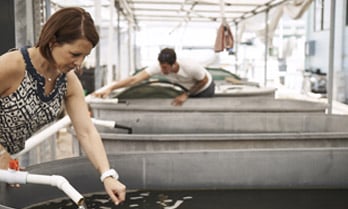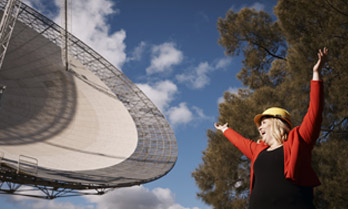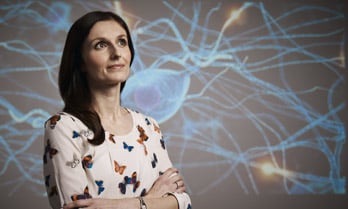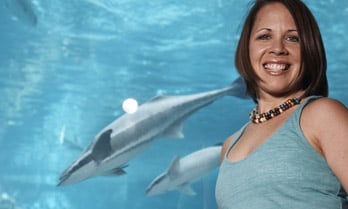Our 2017 Fellow - Jaclyn Pearson
11 January 2018
After the whirlwind of being awarded the For Women in Science Fellowship, we asked our 2017 Fellows a bit about their research and what it meant to be awarded the Fellowship.
Informing future therapeutic development for IBD

Jaclyn is a microbiologist specialising in the microorganisms of the gastrointestinal tract. Jaclyn hopes to better understand inflammatory bowel disease - with over 75,000 Australians suffering from this autoimmune disease, Jaclyn hopes to better understand the role of bacteria in the gut and how they influence our immune response.
Jaclyn’s findings will improve our understanding of the underlying mechanisms of IBD, and inform the future therapeutic development to combat this disease.
Gut health is very topical at the moment, and you are identifying how gut pathogens (or bacteria) target certain immune responses, how will this help to lead to the development of a therapy to help IBD?
Before we can design a therapy or drug to treat a disease, you must understand the underlying mechanisms of a disease. This is why basic/fundamental research is so important. Without this critical knowledge it is impossible to know where to begin.
To form a therapy or drug that can help treat or even prevent disease is always a researcher’s dream goal, but a lot of research occurs before this.
Basic/fundamental research is essential to applied research and that’s why I am so passionate about the work that I do. Every little step of progress I make, drives me to the next challenge.
The increased knowledge I will provide by my research could have multiple outcomes to better people suffering IBD or serious infections of the gut, and that is really exciting.
You have quite a unique past, previously a part of a chart-topping punk-rock band. How does your music background influence your research, and what made you decide to return to science?
Having a background in music performance really boosted my personal confidence, my creativity, and not something you might expect from being in a rock band - my organisational skills. I was considered the ‘mum’ of the group and organised a lot of the travel and administration for the group.
I also feel that I developed a sense of resilience, being in a young all-girl rock band in a demanding and highly competitive male dominated industry.
But we did well, we were nominated for an ARIA for our first single, we toped the ARIA alternative charts, we won radio awards, featured on music TV shows, toured and played festivals with many famous bands and even took out a very competitive European song contest award!
I had a huge amount of fun touring and recording, it really was a dream come true, a once in a lifetime event, but when things got a bit too serious and pressured it was a very easy decision for me to turn back to my original passion which was for investigative biological science.
I really felt like I needed intellectual stimulation again, and I knew that I still had that passion inside for learning and science. I was so happy the day I re-enrolled at University and began to think about what the future might hold for me in science. I was determined to do a PhD and be successful, and the brief music career experience gave me that confidence to take it on.



